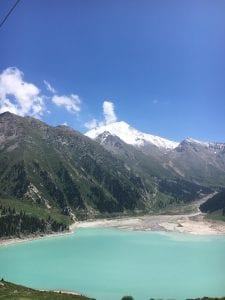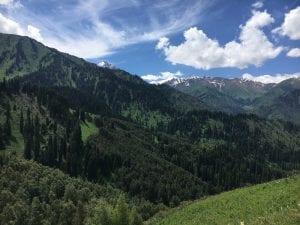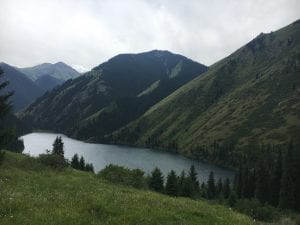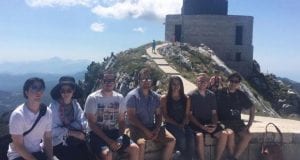By Eileen Kunkler, CSEES assistant director
As a result of the global COVID-19 pandemic, plans for summer 2020 for many have been upended. In the past few weeks, most of us have had to make radical changes to our personal and professional lives, including cancelling study abroad and travel plans for the foreseeable future, learning how to teach or take classes online, and caring for children, loved ones, and pets while working from home. In point of fact, this article was written from the comfort of the author’s home with her trusty dog by her side, instead of in the pet-free confines of Enarson Classroom Building, and most of you reading this will presumably be doing something similar from your own home offices. And the situation does not seem likely to change within the next couple of months. Recent university restrictions prohibit travel for most of the summer, study abroad programs have been cancelled, and almost all colleges and universities have decided to keep teaching online for the summer until there is more clarity about the pandemic and its duration.
From the student perspective, summer semester, or quarter for those of us from an earlier vintage, was the chance to study abroad, to visit a foreign country or continent, to explore the world and young adulthood with a degree of independence and unfettered by family or typical routines and obligations. This is not to say that studying abroad is frivolous or without academic rigor. Summer programs are appealing exactly because they combine both, the chance to experience something different, as well as plunging into research or learning about language, history, art, culture, etc. in depth and hands-on. For language students in particular, summer programs offer the opportunity to study a foreign language intensively and usually in an immersive setting, whether abroad or at one of the many U.S.-based language workshops. These summer intensive programs give students the opportunity to make significant progress in the development of their language skills, typically studying the equivalent of two semesters of language courses over the period of six to ten weeks.
For decades, CSEES has been a Foreign Language and Area Studies (FLAS) Fellowship granting institution, and the hundreds if not thousands of CSEES summer FLAS awards over the years have funded graduate, and more recently undergraduate, students to focus on language studies during the summer. Many readers may have at some point received a FLAS, whether from CSEES or another institution. FLAS alumni are spread throughout higher education institutions across the country, graduate programs, and government agencies, creating a lasting network that supports and advocates for the study of foreign languages in the U.S. If you have ever attended an area studies conference, you know that more than one introduction or conversation has been started by sharing a FLAS reminiscence.
Despite COVID-19, CSEES’ summer 2020 FLAS program will continue, though in an admittedly abbreviated and drastically altered form. Understandably, many students are disappointed to not have the opportunity to study abroad or experience the camaraderie of studying with a cohort at a domestic program. But many programs are adapting to the current situation that we find ourselves in and are figuring out how to create good virtual, intensive programs for the summer. Additionally, the Department of Education has given FLAS programs temporary permission to award summer fellowships for online programs with case-by-case approval, a break from usual prohibitions against online learning. As a current language student myself, I must admit I started online coursework a few weeks ago with trepidation, but I quickly saw that with a good teacher and program, language learning can be effective online. Programs with long histories of providing quality, in-person instruction are making the leap to maintain what programming they can, and some such as the Critical Languages Institute are even offering a much-reduced tuition fee for many of their programs. Below are a few examples:
- Arizona State’s Critical Languages Institute (Albanian, Armenian, BCS, Macedonian, Polish, Russian, Turkish, Ukrainian, and Uzbek)
- Beloit College’s Center for Language Studies (Russian)
- Indiana University’s Language Workshop (Azeri, BCS, Estonian, Hungarian, Kyrgyz, Latvian, Lithuanian, Mongolian, Russian, Turkish, Turkmen, Ukrainian, and Uzbek)
- University of Pittsburgh’s Summer Language Institute (BCS, Bulgarian, Czech, Hungarian, Polish, Russian, Slovak, Turkish, and Ukrainian)
- University of Wisconsin-Madison’s Central Eurasian Studies Summer Institute (Kazakh, Tajik, Uyghur, and Uzbek)
This is not meant as an exhaustive list, or to recommend certain programs over others. However, it is meant to say that there are still opportunities out there for language students that are FLAS eligible and ways to keep pursuing language and area studies even in a remote environment. Hopefully summer 2021 will see our world returning to normal. But in the interim, the CSEES FLAS program intends to keep supporting students’ language and area studies learning goals through new modalities, faithfully adhering to its mission.




















